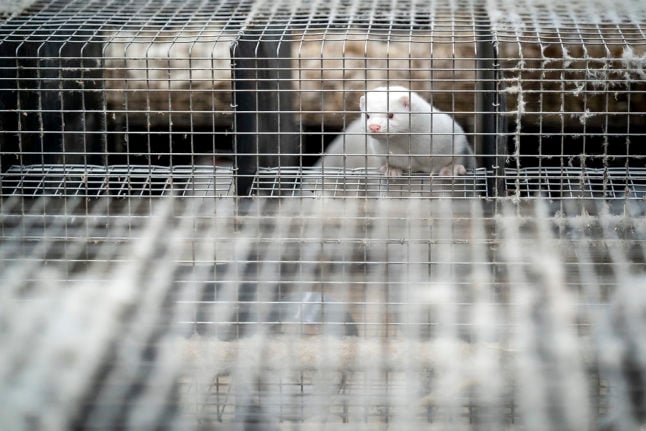“There have been no new cases of the 'Cluster 5' mink mutation since September 15th, which has led to the Danish infectious disease authority SSI to conclude that this variant has most likely been eradicated,” the ministry said in a statement, after the government ordered a cull of all the country's 15 to 17 million minks in a bid to halt the spread of the variant.
The government said most of the strict restrictions it had imposed on November 5th on seven municipalities in the North Jutland region, home to 280,000 people, would be lifted on Friday.
They had originally been due to stay in place until December 3rd.
All minks in the seven municipalities have been culled, totalling 10.2 million, and the slaughter is still ongoing in other parts of the country.
With three times more minks than people, the Scandinavian country is the world's biggest exporter, selling pelts for around 670 million euros annually, and the second-biggest producer behind China.
But the animal has posed a problem in the fight against the new coronavirus. The minks can catch the virus, and also pass it back to humans, and Denmark, like several other countries in Europe, began culling sick minks this summer.
Ireland said Thursday that it was planning a nationwide cull of mink on its commercial farms, which are reported to house around 100,000 animals.
Since ordering the cull in early November, the Danish government has been forced to admit that it had no legal power to order healthy minks outside contaminated zones killed, and the agriculture minister resigned on Wednesday.
But Prime Minister Mette Frederiksen has insisted the cull is “non-negotiable”, and her government is now preparing to ban mink farming altogether until 2022.
Health authorities said initial studies had shown that future vaccines against Covid-19 could be less effective on the 'Cluster 5' variant.
Earlier on Thursday, Oxford University and AstraZeneca said their potential jab had safely produced a robust immune response in older adults.
The vaccine is now in large-scale phase 3 trials to confirm the results, following in the footsteps of those developed by Pfizer/BioNTech and Moderna, which this month announced their products were effective at preventing coronavirus.
READ ALSO: Danish government confirms North Jutland restrictions to be eased early



 Please whitelist us to continue reading.
Please whitelist us to continue reading.
It has turned up in other countries, so it may be eradicated in Denmark but not in other countries.